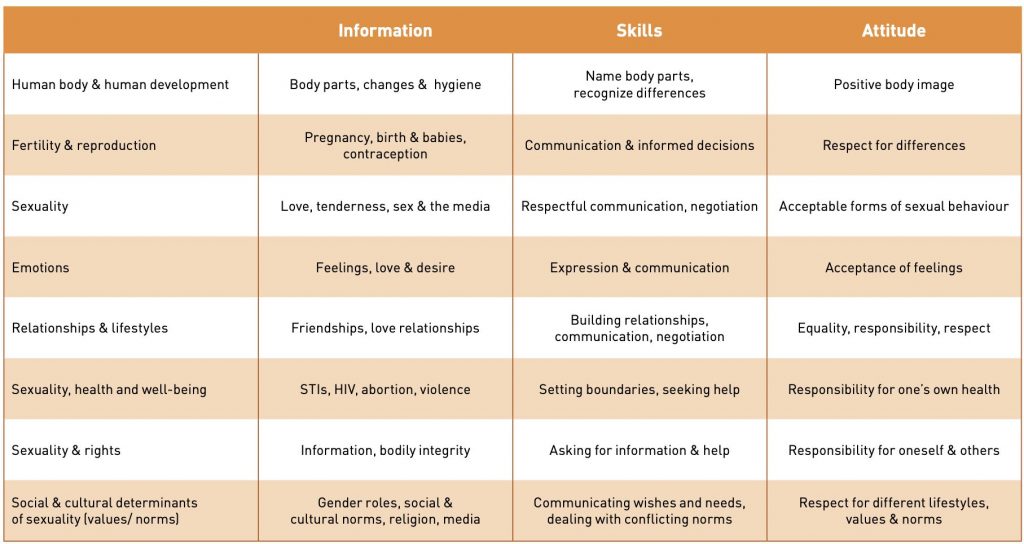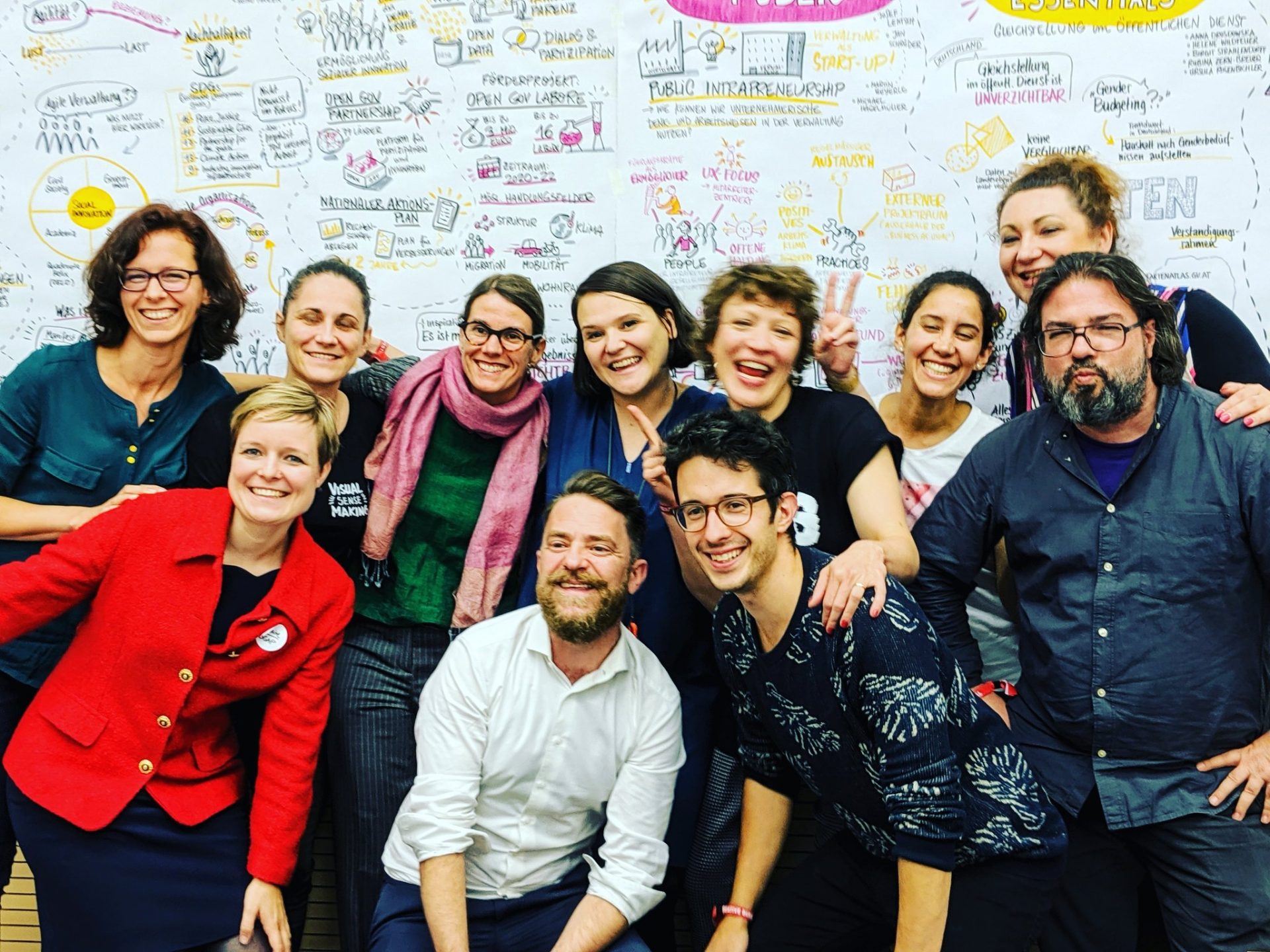Nowadays, far too little attention is paid to Sex Education or the importance of it. In many cultures, Sex Education is considered taboo and not accepted by society. Most are left to this topic themselves, which led to people being unenlightened as a whole. Sex Education is currently – and this most assumingly globally – seen to enlighten young people about sexual intercourse and safe sex, but not about sexual healthcare and important related topics, such as human sexual behavior, sexual anatomy, emotional relations, sexual harassment, and much more. The argument that goes hand in hand with this notion is that excessive knowledge from informal and unorganized sources such as free access internet-based informative sources about the same might lead to risk-involved sexual and promiscuous behavior among the teens. We believe that this issue not only lies in society but in education and therefore needs to be taken into account as an important Social Design project, that eventually affects everyone.
Opportunities
Implementing Sex Education into a school-based curriculum is important because schools play a significant role in preparing young people by guiding and encouraging them – for their potential social roles and obligations in the future. Furthermore, schools offer an open and safe learning environment, reaching a large number of young people from many diverse backgrounds. Adding Sex Education into the curriculum could eventually enable a positive and lifelong effect on society – since it should be addressed formally and informally. Another opportunity is the reinforcement of young people’s self-esteem and their interactions in society, through open communication, building confidence, and normalization of these taboo topics.
As already mentioned, Sex Education nowadays mostly teaches about safe sex. Many are not aware of the interrelated topics and concerns that come with sex education. Many are not even educated about their own body, not to mention the opposite sex. We believe that sexual healthcare is at its very core – building confidence in our own body, as well as sexual behavior in society. The Federal Centre for Health Education (BZgA), in Cologne, Germany, published a proposal for this exact issue – integrating sex education into school-based curriculums. They designed a concept of the topics, that gives a great overview of all the areas of Sex Education – since it is a topic affected everywhere in society. The topics that need to be addressed are summarized in the following table.

Proposal
We would like to address the need by highlighting that Sex Education is a basic human right of every individual starting at a younger age, as health education and promotion, disease prevention, and risk reduction are essential components for helping people stay healthy, safe, and ready to learn.
As some of us have previously gained experience with Sex Education, they know it mainly as a teacher’s job. However, we have looked into the matter that teachers should bring in staff from external agencies for a consultation beforehand or for support during the lessons in order to be able to cover the needs and problems of the students more efficiently. Since various students have pointed out the importance of sex education offering scientific facts, helping kids feel identified with the matter, and being ludic and informative, it should involve experts, as they are specialized in the area of communication with different people, genders, and especially kids or young adults.
In our proposal, the trigger for the idea-generating was Ted Talks, as they are perceived positively due to their seamless and informative nature. People love listening to the speakers; they are short and cohesive. These talks leave a lasting impression on the audience and inspire them to initiate change in the topics explored. However, we had a broader contextual discussion about important issues that need to be considered and added. As our research emphasized appropriate information, learning strategies, teaching methods and materials, basic knowledge, health-promoting choices and behaviors, and societal constraints and influences, we have construed our idea through the aspect of Ted Talks, because it meets the specific needs. However, our points also include the strategies designed to personalize information and engage students; therefore, we have reconstructed our idea into an interactive talk, allowing teachers, students, and parents to take part. Since Sex Education is considered a taboo subject and therefore we might face resistance from parents, it is also a basic human right that we want to cover, which is why we came up with the idea of organizing interactive and open talks to also ease the fear of some parents first.
Stakeholders‘ Impacts
1. School
School is where Sex Education is conducted; therefore, it is the main agent of Sex Education. In close consultation with external experts, the school selects what students need for each grade and provides a forum for students to discuss the topic freely. Unlike traditional Sex Education, which has focused on contraception, by giving students information about various topics such as the biological side of the body, emotions, and sexual ethics, schools can give students about what they need. Also, various problems that have occurred because of distorted sexual knowledge can be solved.
2. Parents
Parents should also participate in Sex Education with students. Schools and households are the places that have the greatest impact on students‘ mindsets, and parents should be able to help students when they ask for help and deliver the right knowledge to them. As mentioned above, sex has been taboo, and this conservative social atmosphere prevents discussion about sex within the house. By participating in Sex Education together, parents can better understand the concerns and thoughts of their children. It can resolve the conservative social atmosphere, and it allows open-conversations about sex-related topics to continue not only at school but also at home.
3. Students
Students should be the main players of the interactive talk. Students‘ active participation is required to avoid one-way delivery of information from the expert. Students will participate in everything from designing Sex Education programs for themselves to participating in classes in the program. Interactive Ted Talk allows students to have more knowledge about sex-related topics and, therefore, they will have a right perception of themselves and the others as respected objects.
4. External Experts
Sex Education Experts should participate in providing professional sexual knowledge to students. As experts, they deliver facts based on correct terms and scientific evidence to students. They also initiate conversations about sex and ask students questions to help students continue interactive talk independently.
The design manager acts as a bridge between all these parties. They adapt design methodology to identify what kind of subjects should be covered based on students‘ needs and work with Sex Education experts to devise the best sex education curriculum for students and implement it.
Authors: Eun-Jeong Dan, Yash Chauhan, Alisha-Lou Nader, Isidora Ceculovic
